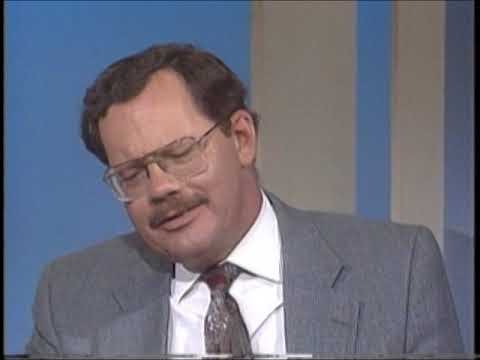Crossroads -- Terry Anderson's faith was tested, to say the least
Nearly seven years in captivity changed his life, but that ordeal included his return to Catholicism
Obituaries are hard to write. When a reporter tries to describe a complex person, who has lived a complex life, it’s rather like trying to write a biography in 700 to 1000 words.
In the end, you have to make choices about which facts and themes to stress. The choices journalists make when writing obits often reveal as much about their editors and target audience as they do about the person who has died.
Associated Press legend Terry Anderson — who died last Sunday (April 21) — knew that, no matter what he did, his life would be framed by his 2,454 days as a Shia Hezbollah hostage. I had four encounters with Anderson after his release in 1991 and I heard him describe details of that ordeal several times.
The key to this week’s “Crossroads” podcast is that I heard him speak to audiences that truly wanted to know the spiritual details of that experience and how his faith was part of his survival.
Thus, in my “On Religion” column tribute to Anderson this week, I focused on those details. Here is a crucial piece of that:
Anderson pleaded with his guards to get him a Bible. When they did that, he read it from cover to cover 50 times while in captivity. Early on, he also learned that a Catholic priest -- Father Lawrence Jenco -- was a hostage. During their time together, Jenco heard Anderson's first confession in 25 years.
"I still had plenty of questions about the Bible," Anderson told me, during a 1999 global conference for Christian journalists in Chichester, England. Then, after Jenco was released, "I was locked up with a seminary professor." That hostage was the Presbyterian missionary Benjamin Weir, from the Near East School of Theology in Beirut.
"I needed a priest and God gave me a priest," said Anderson. "I had Bible questions and God gave me a New Testament professor. … I realized that God had not abandoned me."
Anderson once told me — I saved the notes in my research files about his life — that if he closed his eyes he could still remember the smell of that new Bible. Reading that Bible over and over didn’t make his hard questions go away, but it changed many of the questions and pointed to different answers.
The Associated Press obit for Anderson is must reading, for obvious reasons. It is a secular look at this life, but I noted this key passage:
“So, when people ask me, you know, ‘Are you over it?’ Well, I don’t know. No, not really. It’s there. I don’t think about it much these days, it’s not central to my life. But it’s there,” he said.
Anderson said his faith as a Christian helped him let go of the anger. And something his wife later told him also helped him to move on: “If you keep the hatred you can’t have the joy.”
Anderson shared that “hatred” and “joy” quote in a speaking engagement only a few days after September 11, 2001 — when he had to wrestle with his anger all over again.
In my experience — hearing him give speeches, but also talk to other reporters during meals — Anderson knew that his hostage experiences left him broken, to some degree. The question was how he would, with the help of his faith, deal with that brokenness. He won some battles and lost others. That’s part of his story.
However, read the following passage from The New York Times and then contrast it with the AP obit and my column:
While he had not been tortured during his captivity, he said, he was beaten and chained. He spent a year or so, on and off, in solitary confinement, he said.
“There is nothing to hold on to, no way to anchor my mind,” he said after the ordeal. “I try praying, every day, sometimes for hours. But there’s nothing there, just a blankness. I’m talking to myself, not God.”
He found some consolation in the Bible, though, and added: “The only real defense was to remember that no one could take away my self-respect and dignity — only I could do that.”
I don’t question the accuracy of this material. What I question is the context, in terms of the other facts that Anderson shared many times about his life. He read that Bible, front to back, 50 times and pored over crucial passages day after day. Was that “some” consolation or did that discipline become a powerful force in his life? Yes, Anderson said that some of his prayers felt futile, even after his contacts with Father Jenco and the renewal of his Catholic faith.
Life is complex, even for believers.
Enjoy the podcast and, please, share it with others.





May his memory be eternal.
Because he had a connection with Iowa, I think my grandmother, who lived her whole life in Iowa, followed Anderson's story pretty closely. I can remember how it was a big deal when he was released, even though I was young enough (12) that I didn't necessarily understand what all had happened.
Interestingly, Kathryn Koob, who was one of the American hostages in Iran, not only had deep Iowa connections, but I discovered her story researching genealogy on my mom's side. Both of Anderson and Koob are impressive insofar as they really dug into their faith during their captivity, and there's certainly an argument to be made that it was key in their survival.